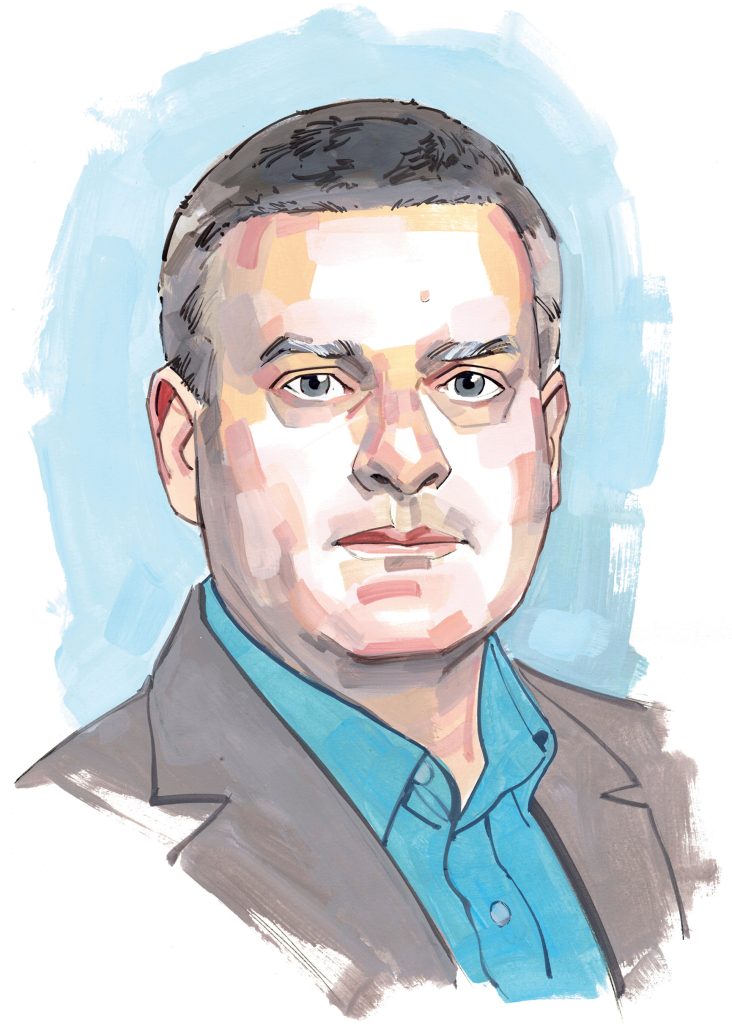Pocket Résumé
Degrees: JD, MLS, Stanford Law School; MPP, Harvard University Kennedy School of Government; BSFS, Georgetown University. Fellowships & Associations: In Vietnam: Harvard’s Institute for International Development; Fulbright Economics Teaching Program. Teaching: Corporations, Corporate Counsel Seminar, Mergers & Acquisitions, and Deals: The Economic Structure of Transactions; Startup Companies & Venture Capital Finance. Selected Publications: UC Davis Law Review, University of Cincinnati Law Review, Journal of Corporation Law, co-author of a leading casebook Mergers & Acquisitions: Law, Theory, and Practice (West). Fluent: In Vietnamese. Awards: 2011 Professor Emil Slizewski Award for Faculty Excellence and the Provost’s 2012 TWIN Award for the use of new technology in teaching. Media: New York Times, Wall Street Journal, Financial Times, Boston Globe, and more.
The Idea: Fair or not, conventional wisdom holds that in law schools and other university settings, teaching may be important, but scholarship is where professors attain prestige. But that view underestimates the inherent interdependence of teaching and scholarship. To teach a subject requires a deep understanding of it, the kind of understanding that sparks the creative act of noticing unexplored questions—the first step in generating insightful scholarship that advances knowledge and perhaps leads to reform. It follows, then, that law professors seeking to enhance their scholarship may find inspiration in methods that improve their teaching. It turns out that one of these methods comes in the form of open-source law casebooks, an innovative discovery by Boston College Law School’s Brian J.M. Quinn, who is among the first to use them.
The Impact: Open-source educational resources began gaining traction in the mid-1990s. These free or low-cost computer-based materials are intended to improve teaching and help make education more affordable, available, and effective for students. They have been found to improve student enrollment and performance.
An early pioneer in creating digitally based, sharable educational materials for law schools was the Center for Computer-Assisted Legal Instruction (CALI), a nonprofit consortium of law schools and law libraries. Formed in 1982 and still in existence, CALI in its early days focused on producing computer-based exercises for use in law school classrooms, and on developing the network necessary to share them. Over the years, several BC Law professors have developed or used CALI materials.
Professor Brian Quinn has come to prefer open-source casebooks—not only for what they do for his teaching, but also for his scholarship.
The gravitational center of law school teaching materials is, of course, the casebook. By the 2010s, CALI was publishing open-source casebooks through its eLangdell electronic bookstore. LawCarta, now part of LiveCarta, and Harvard Law School’s H2O have also entered the open-source casebook space.
Open-source casebooks are distinct from digitized casebooks. A digitized casebook is a digital version of a copyrighted hardbound volume sold by a publishing house. In contrast, an open-source casebook is a virtual document conceptualized, assembled, and authored by a professor without the intermediary of a publisher. It is open-licensed and available to anyone with an internet connection, generally for little or no cost. Easily updated, open-source casebooks can be constantly refined to reflect the professor’s evolving views on teaching. If students want hardcopies, they can print them themselves or, in the case of H2O, purchase a bound copy from Amazon for a nominal price.
As co-author of two casebooks (corporations, and mergers & acquisitions), Quinn is no stranger to the world of hardbound publishing. Yet, increasingly dissatisfied with the expense of traditional casebooks (~$300 per book) and their incompatibility with his teaching, Quinn has come to prefer open-source casebooks—not only for what they do for his teaching, but also for his scholarship. He has been teaching from two casebooks he created via H2O—one on Corporations, which he has been using (and modifying) for nearly a decade, and one, which he launched in its first iteration three years ago, on Venture Capital.
H2O allows Quinn to be nimble with his material, keeping it fresh and relevant. “We’re not talking about, oh, foxes jumping fences in the sixteen hundreds,” Quinn says. Instead, his open-source casebooks cover bitcoin and Tesla and Twitter, all the while coming back to first principles.
Quinn teaches corporations, mergers and acquisitions, and transactional law. Venture capital law is a new area for him. Crafting and revising his venture capital casebook has, he says, helped him build his own knowledge base and master the details and minutia. “After you’ve mastered that detail,” he says, “things start to pop up. You start asking questions, like, why does it work this way?”
What, he wonders, are the incentives for helping parties achieve their goals? How do existing financing structures help or hinder? Can better financing structures be devised? “You can only see that when you spend a lot of time looking at the detail, which is the benefit of using H2O,” Quinn says. A phenomenon that troubles some watchers of the hi-tech sector is that giant companies keep acquiring start-ups, possibly to the detriment of robust competition. “Perhaps there’s something in start-up financing that creates incentives for small companies to sell,” Quinn says. He has been investigating that question, and envisioning incentives that might lead start-ups to perceive a lucrative payoff to staving off a buyout. He has a venture capital paper in progress.
Around one hundred professors representing some forty law schools have authored open-source casebooks with H2O. Given that there are an estimated 14,000 law teachers in the US, Quinn qualifies as an early adopter. With his insight that open-source casebooks are a boon not only for teaching, but also for scholarship, perhaps more will join him.



